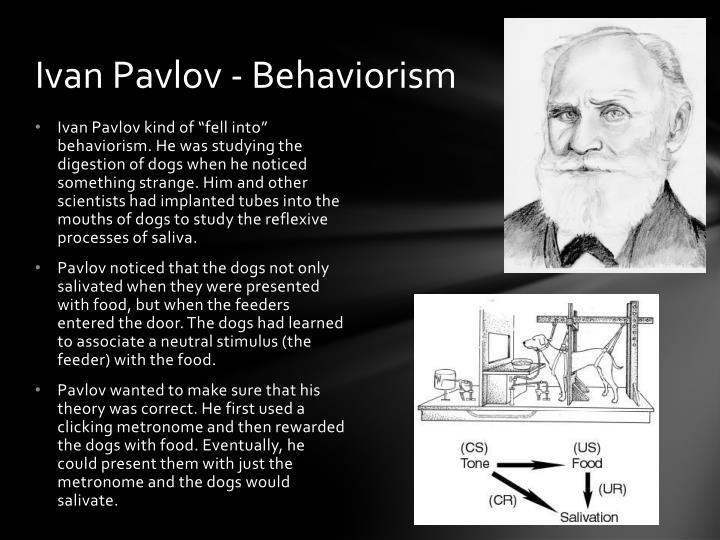
:max_bytes(150000):strip_icc()/Pavlov-stamp-569bb3ee5f9b58eba4a5224f.jpg)
The bell before the food is the conditioned stimulus.

When you’re presented with it over and over before the unconditioned stimulus (e.g., food), it will start to evoke the same response. This is what response naturally occurs when you experience the unconditioned stimulus, such as salivating from the food. Food is the unconditioned stimulus in Pavlov’s dog experiment. This is the thing that triggers an automatic response.
#Ivan pavlov psychology skin
For example, beauty commercials use actors with clear, smooth skin to lead consumers to associate their product with healthy skin.īelow we break down classical conditioning, give some examples, and help you better understand how it’s used in health and well-being. In our day to day, advertisers often use it to push their products. We’re all exposed to classical conditioning in one way or another throughout our lives. In turn, that helps prevent us from getting sick in the future. For instance, getting ill from a certain food helps us associate that food with sickness.

These dogs learned to associate the bell ringing with food, causing their mouths to salivate whenever the bell rang - not just when they encountered the food.Ĭonditioning is beneficial in an evolutionary sense because it’s helped us create expectations to prepare for future events. To test his theory that the dogs were salivating because they were associating the people with being fed, he began ringing a bell and then presenting the food so they’d associate the sound with food. In an experiment on canine digestion, he found that over time dogs were salivating not only when their food was presented to them, but when the people who fed them arrived. The best-known example of this is from what some believe to be the father of classical conditioning: Ivan Pavlov. When you learn through classical conditioning, an automatic conditioned response is paired with a specific stimulus. Classical conditioning is a type of learning that happens unconsciously.


 0 kommentar(er)
0 kommentar(er)
